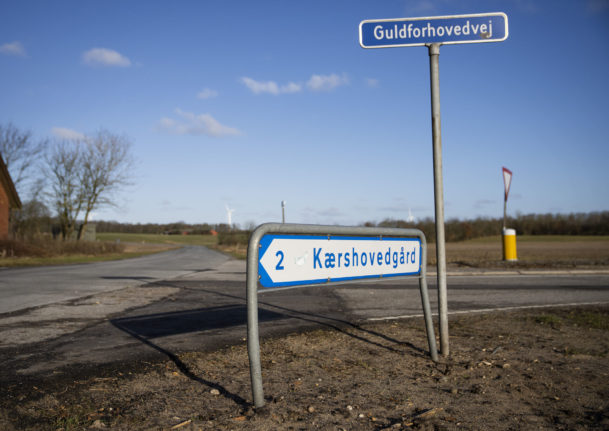Opposition to the planned changes from France and Belgium – which holds the rotating Presidency of the EU Council this semester – proved decisive. In the end negotiations reached a deadlock and the planned reform – which would essentially have made it easier for non-EU nationals to live and work in other Schengen area countries – was dropped.
German MEP Damian Boeselager, the lead negotiator for the European Parliament, was left angry by the failure and shared the news this week with colleagues in the home affairs committee.
“This is a huge setback for everyone who hoped Europe would finally understand the necessity to update its migration laws and become more attractive for international talent,” he said.
“The long-term residence directive… was adopted first in 2003 and has not been updated since. But the Council was not willing to accept any of the substantial improvements that the European Commission proposed… Instead, it seems that one national government, in particular, threw all its negotiation power and size to build a blocking minority,” he added.
“I am of course super sad for all the work that has been put into this… But I think the real tragedy lies outside this house and that is, in two different areas.
“First, for the millions of third-country nationals already living in Europe who would have been subject to the improvements, but also for all those who are considering to come to Europe and now might decide against it. And second, for the thousands of businesses and start-ups that hoped that there would be easier procedures and less waiting times and who have been deprived of the chance to make Europe more competitive.”
Little-known EU residence status
Under a little-known EU law, third-country nationals can acquire EU-wide long-term residence if they have lived ‘legally’ in an EU country for at least five years. They also must not have been away for more than 6 consecutive months and 10 months over the entire period. (British citizens covered by the Withdrawal Agreement benefit from different rules on absences in comparison to permanent residence, but it is not clear what impact they would have on qualifying for EU long term residence. We are seeking clarification.)
In addition, they have to prove to have “stable and regular economic resources”, health insurance and can be required to meet “integration conditions”, such as passing a test on the national language or culture.
In theory the status, which was created to “facilitate the integration” of non-EU citizens who live in the EU on a long-term basis, grants some free movement rights. However, in practice, this is not the case as different rules on residency apply in each EU country and most applicants are simply unaware the EU status exists.
In an interview with The Local last year, Damian Boeselager, a member of the Greens/European Free Alliance group in the European Parliament, said that free movement for non-EU citizens was still an “illusion”.
“The truth is that Europe needs labour migration in all areas and all skill levels and therefore, if we want to be more attractive, we should make it easier (for non-EU citizens) to move from one member state to the next,” he argued.
In 2020, 23 million third country nationals – 5 percent of the EU’s population- were living in EU member states. Of these, more than ten million held a long-term or permanent residence permit.
INTERVIEW: Why it must be made easier for non-EU citizens to move around Europe
‘Time was against us’
The European Commission had proposed in 2022 to simplify EU long-term residence rules. Under proposed measures, non-EU citizens would have been able to cumulate residence periods in different EU countries to reach the 5-year requirement, instead of resetting the clock at each move. The plan would have meant all periods of legal residence would have been fully counted towards the 5 years, including those spent as students, beneficiaries of temporary protection or on temporary grounds – which is currently not the case.
Integration tests should not have been too burdensome or expensive, nor should they have been requested for long-term residents’ family reunifications. The Commission had also proposed to extend from 12 to 24 months the possibility to leave the EU without losing the status, with facilitated procedures to re-acquire it after longer absences.
READ ALSO: What is the EU’s plan to make freedom of movement easier for non-EU nationals?
The Commission’s proposal had to be agreed by the European Parliament and Council, which is made of representatives of national governments.
The Parliament supported the Commission and sought to further relax rules, asking to cut the residency requirement to obtain EU long-term residence from five to three years.
But when it came to the EU Council it proved harder to reach an agreement.
The representatives of EU governments only agreed to cumulate residence periods of up to two years in other member states and only in certain circumstances, such as for EU Blue Cards or other permits for highly qualified employment.
EU governments also wanted to continue requiring “integration conditions” and to “assess the situation of their national labour markets.”
The Council and the Parliament had to reconcile their positions to agree the final text of the law. But after months of discussions, the Belgian Presidency said this week there was not “enough support” from EU member states to continue talks.
Belgium’s Secretary of State for Asylum and Migration, Nicole De Moor, said: “We have to realise that time is against us on this subject. We are nearing the end of the legislative term… we had a lot of discussions, but unfortunately at this point in time the water is too deep.”
A key factor of disagreement was the possibility to cumulate residence periods in different EU member states. France in particular was against it as this would have clashed with the idea of integrating long term into French society, an EU diplomat told The Local.
Other countries were concerned by the ability to exchange information to verify residence periods. Austria, on its part, was against the inclusion of family members in the scope of the directive.
Overall, The Local understands, with the European elections looming there was not appetite among EU governments to relax such measures.
What happens next
The file could now remain pending until another presidency puts it back on the Council agenda, but this is unlikely to happen soon, as the next Presidencies will be held by Hungary and Poland. The European Commission could also decide to withdraw the proposal with a view of presenting a new one, but that won’t happen until the next Commission takes office.
The article is published in cooperation with Europe Street News.



 Please whitelist us to continue reading.
Please whitelist us to continue reading.
Member comments